Mushrooms aren’t just something you fry up and throw on toast (though they’re certainly delicious that way).
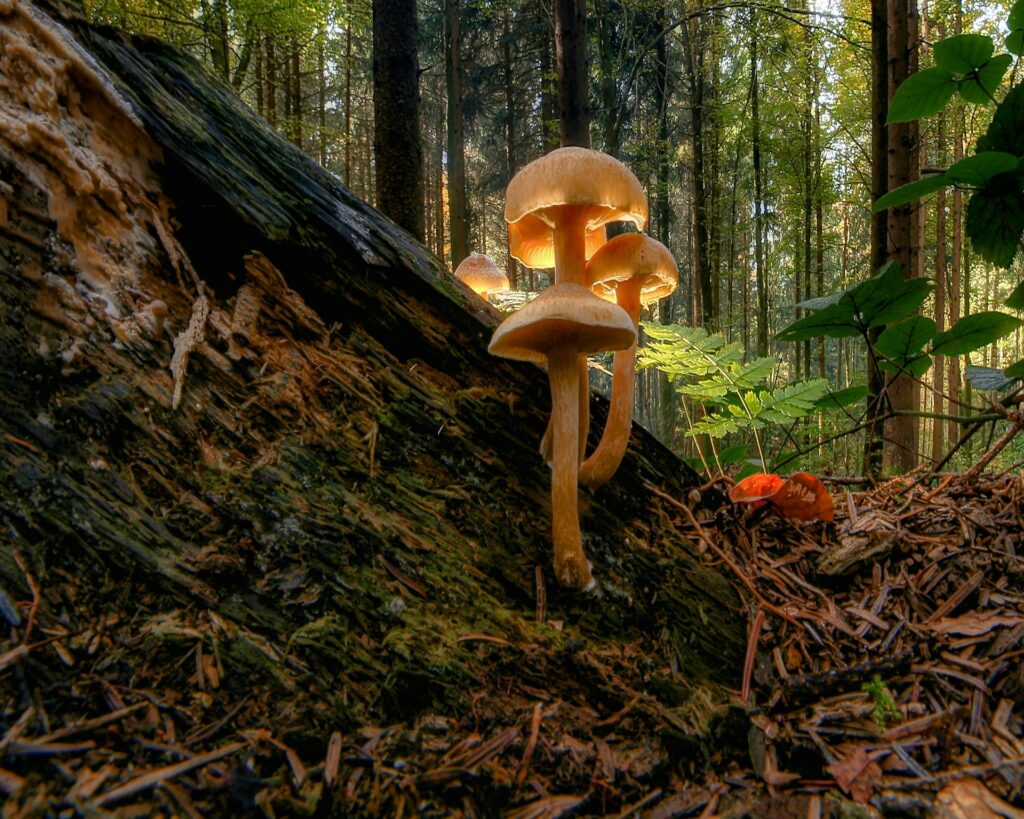
They’re actually doing some remarkable work across the planet, and we’re only just starting to understand the full range of what they’re capable of. From cleaning up pollution to helping us tackle mental health issues, these fungi deserve a bit more credit. Here are just some of the impressive things mushrooms can do that are honestly quite mind-blowing.
They can help treat depression and anxiety.
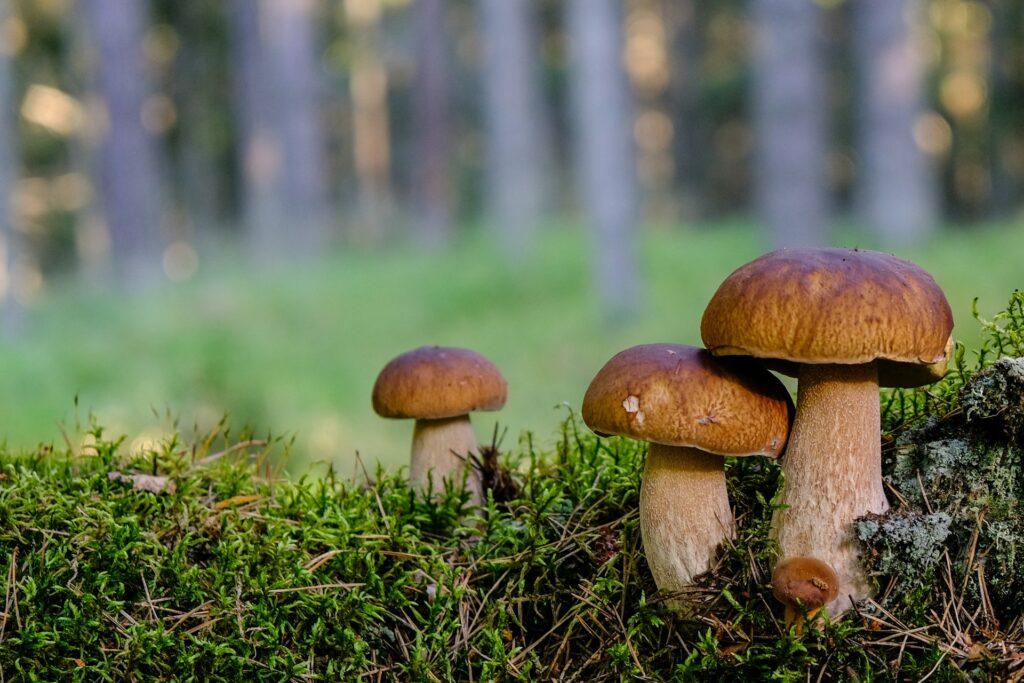
Some mushrooms have shown real promise in mental health treatment, particularly psilocybin, the compound found in so-called “magic” mushrooms. In clinical settings, psilocybin has been used to treat people with depression, anxiety, and PTSD, often where traditional medication hasn’t worked.
A study by Johns Hopkins University even found that psilocybin-assisted therapy helped ease depression symptoms in adults for up to a year after just two doses. You can read about it here. It’s not a free-for-all—it’s done under very controlled circumstances – but it’s shifting how we think about treatment.
They break down plastic and toxic waste.
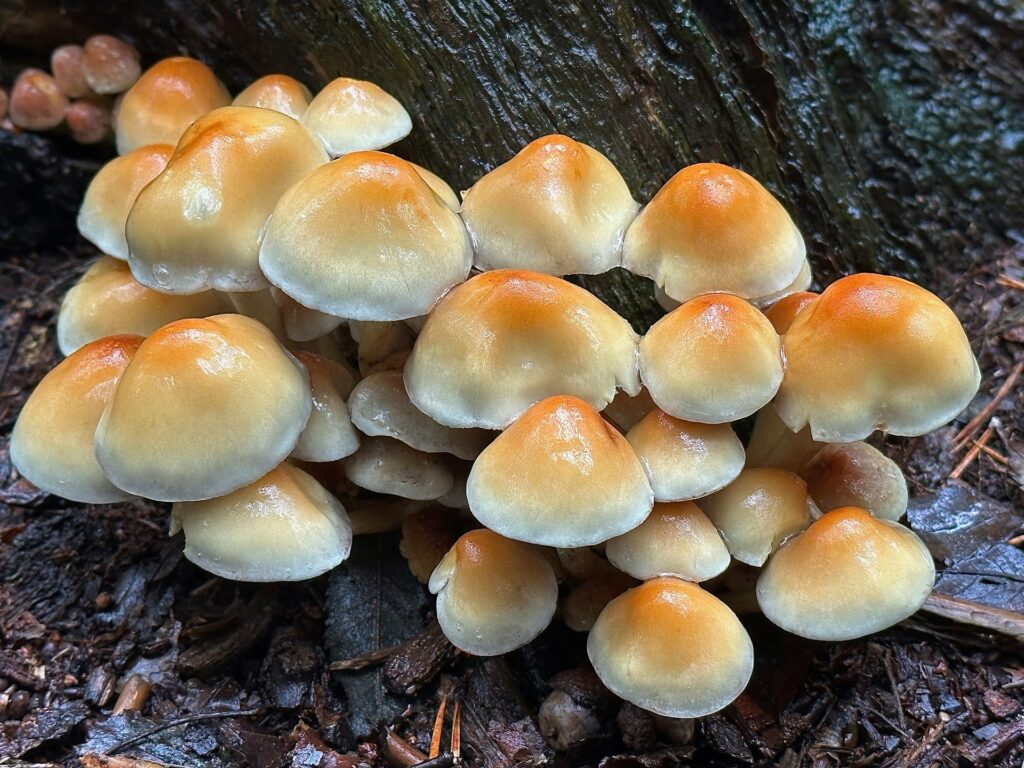
Some fungi can digest materials that would otherwise stick around for centuries. One of the most impressive is Pestalotiopsis microspora, a species that can break down polyurethane, a common plastic, even in oxygen-free environments. It was discovered in the Amazon rainforest, and it’s giving researchers hope for future waste solutions.
Mycoremediation (a fancy term for using fungi to clean up messes) has also been used to help clean oil spills and toxic sites, like after the BP oil disaster in the Gulf of Mexico. A study published in the Journal of Environmental Health Science & Engingerring proves just how useful this could be.
They can connect trees across entire forests.
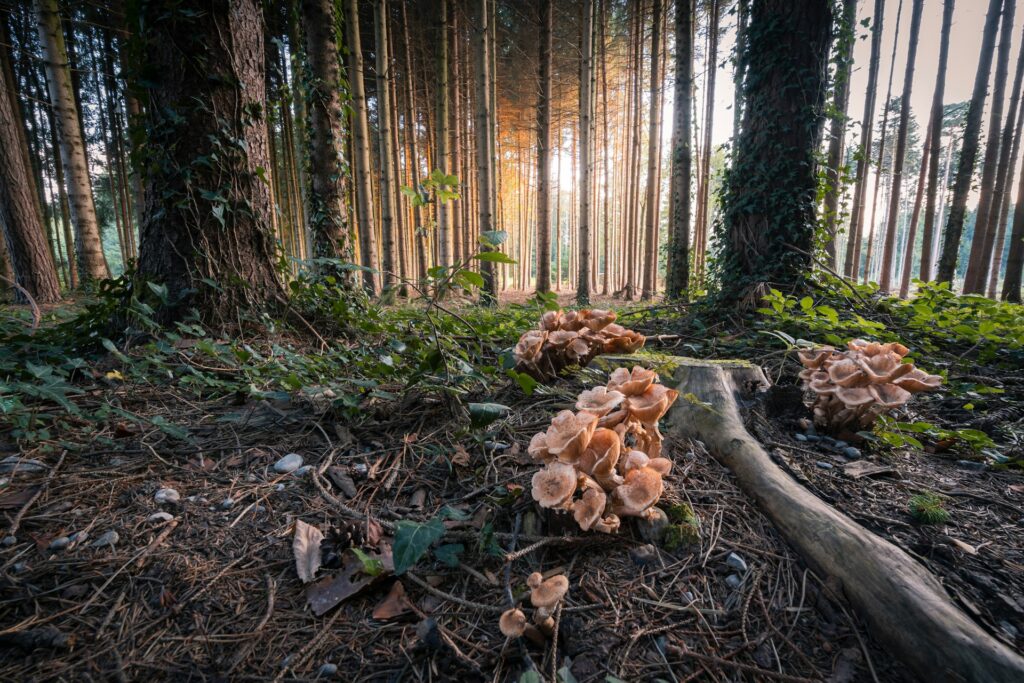
Mushrooms are just the fruiting body of a much bigger underground network called mycelium – a sort of web of threads that runs through the soil. This network allows trees to share nutrients, water, and even warning signals. It’s often called the “Wood Wide Web,” and while that might sound a bit twee, it’s based on real science.
Dr. Suzanne Simard’s research showed that trees can “talk” to each other using these fungal threads. Older trees even help feed younger ones, through the mycelium. It’s not just poetic; it’s functional, and it’s one of the ways forests stay resilient.
They could help us build better materials.
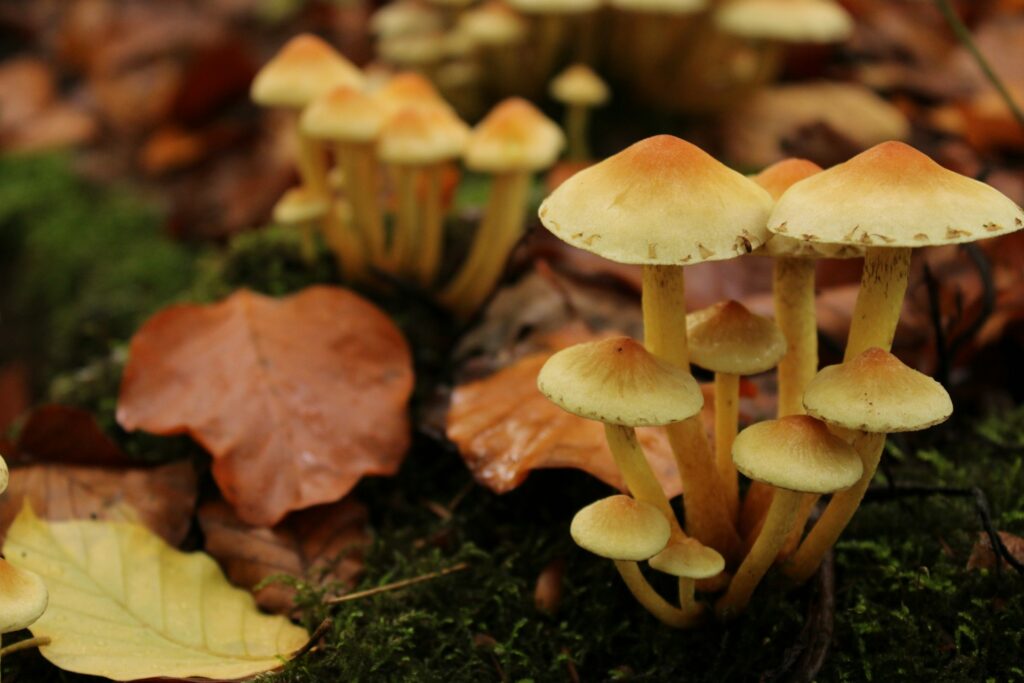
Mycelium doesn’t just help trees. It can be used to create tough, biodegradable materials that rival plastic and even bricks. Companies are now using it to make packaging, furniture, and even building insulation. Unlike polystyrene, it breaks down naturally and doesn’t leave toxic residue behind.
There’s even a mycelium-based leather alternative called Mylo that’s being explored by fashion brands like Stella McCartney and Adidas. It’s not just about replacing materials – it’s about rethinking them entirely.
They’ve been used as natural antibiotics.
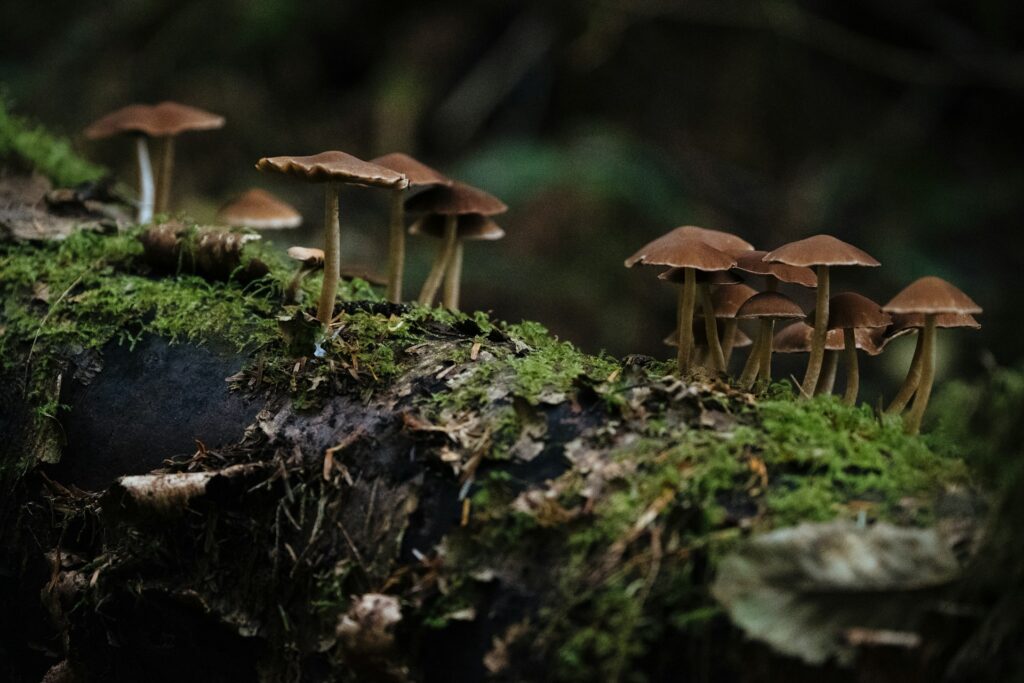
Before penicillin, we didn’t fully grasp the power of fungi in medicine. However, mushrooms and other fungi have been quietly doing the job for millennia. Penicillin itself comes from the Penicillium mould, and it’s just one example of how fungi have revolutionised medicine.
There’s also research into mushrooms like Agarikon (a rare, ancient species) for antiviral properties. Some of these fungi have shown activity against flu viruses, herpes, and even some bacteria that are resistant to modern antibiotics.
They can help improve soil health.
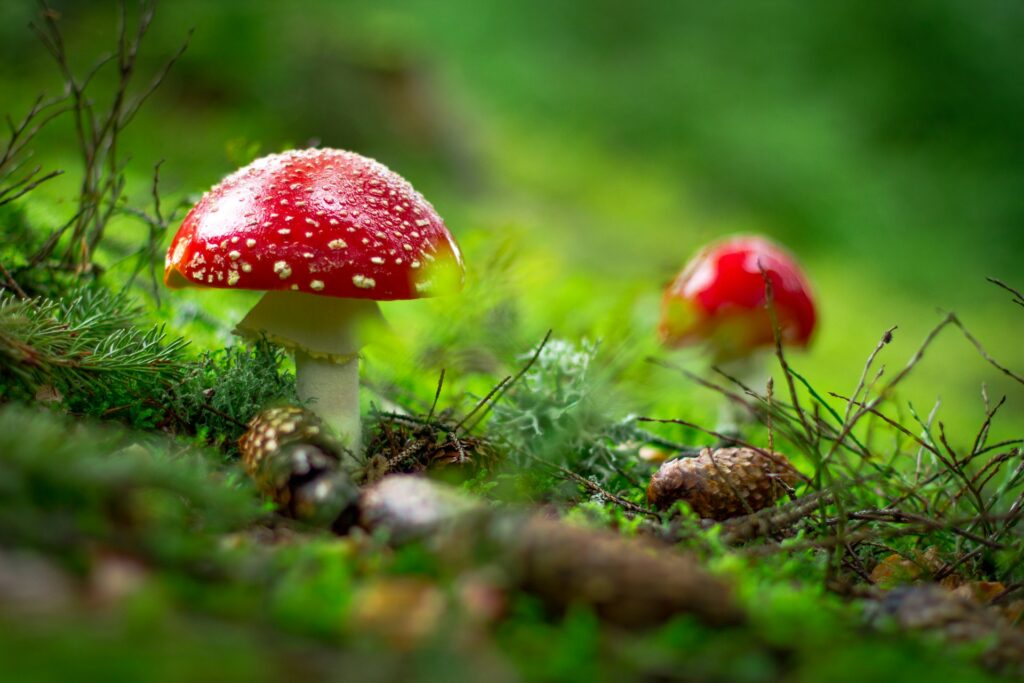
Fungi are one of nature’s best recyclers. In soil, they help break down organic material and return nutrients back to the earth, feeding plants and improving fertility. They also improve the structure of the soil, helping it retain moisture and reducing erosion. If you’re into gardening, using woodchip mulch and encouraging mycelium growth can naturally enrich your soil without needing chemical fertilisers.
They might help fight cancer.
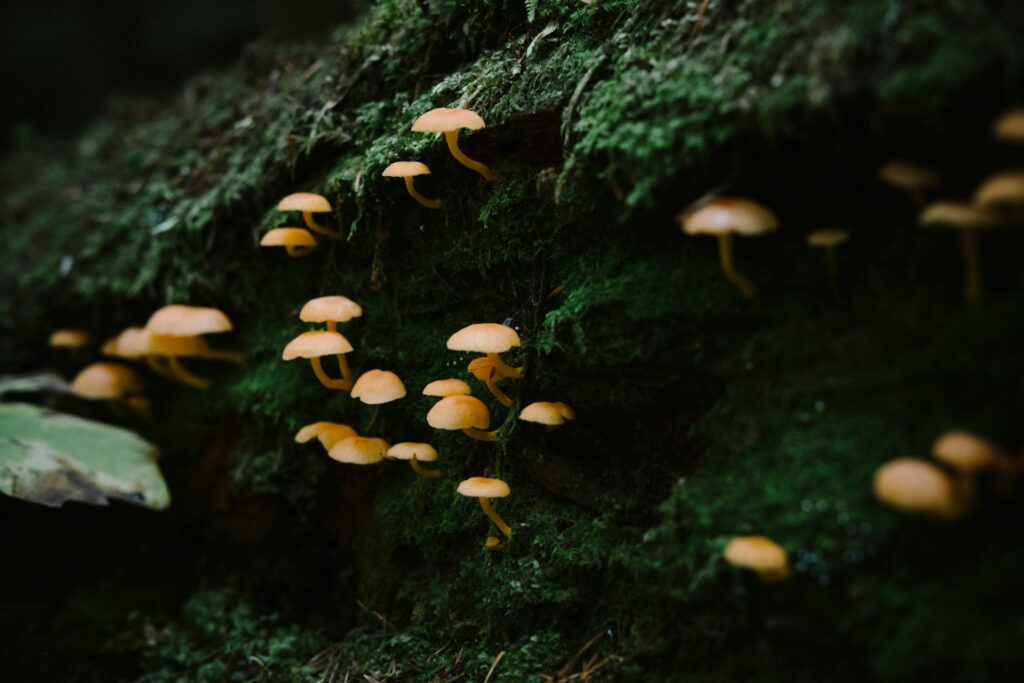
Several mushrooms are being studied for their potential anti-cancer properties, especially turkey tail, reishi, and shiitake. While they’re not a cure, compounds in these mushrooms appear to support the immune system in recognising and attacking tumours. Research has found that Coriolus versicolor (turkey tail) could help improve survival rates in cancer patients when used alongside chemotherapy. There’s still a lot to learn, but early results are promising.
They can support your immune system.
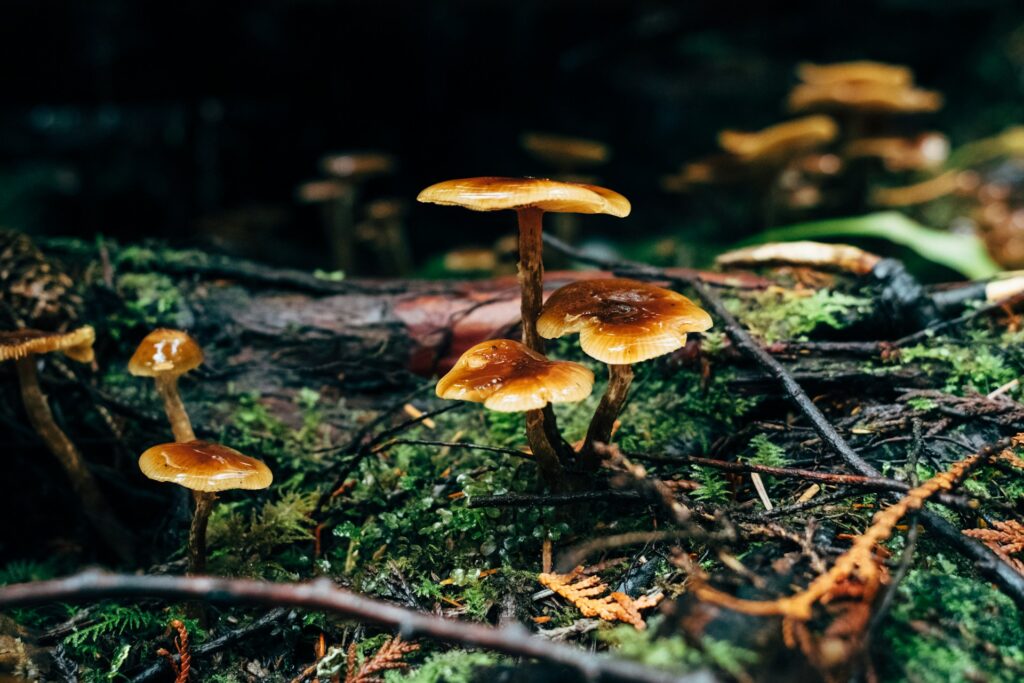
Even the mushrooms you pick up at the supermarket can offer benefits. Varieties like shiitake, maitake, and oyster mushrooms contain beta-glucans—compounds that help regulate the immune system. They don’t overstimulate it, but they can help it work more efficiently. Adding a few different mushrooms to your diet might not be a magic fix, but it certainly doesn’t hurt.
They can absorb radiation.
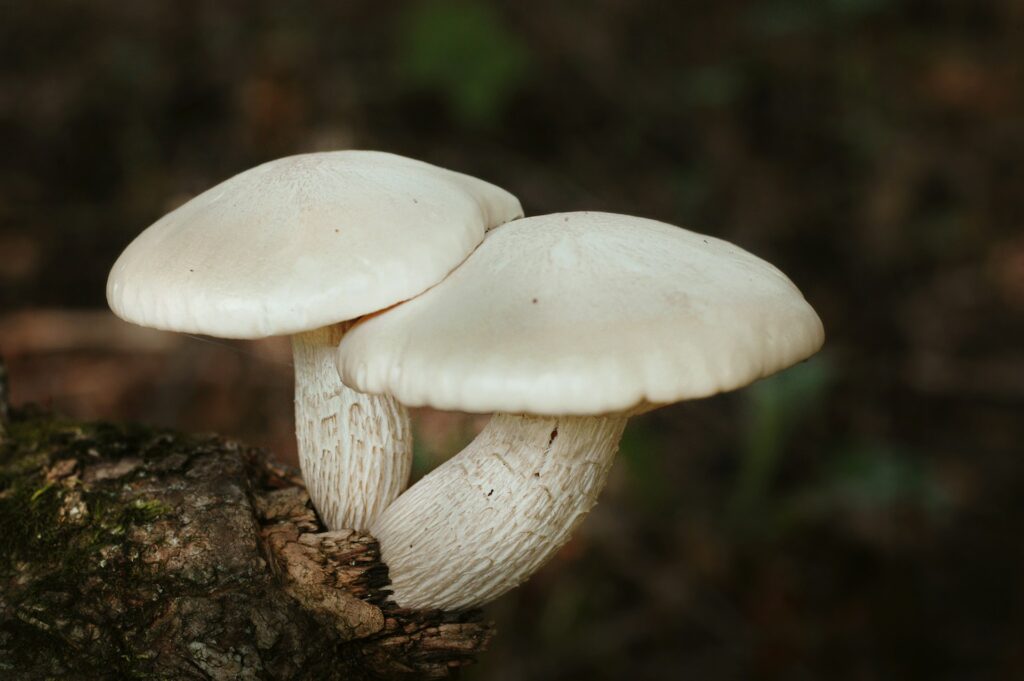
Fungi found near Chernobyl have evolved the ability to grow in high-radiation areas by using melanin, the same pigment found in human skin, to absorb radiation and convert it into chemical energy. Researchers think these mushrooms could eventually be used to help clean up nuclear sites or even shield astronauts from radiation in space. NASA has even looked into using fungal-based materials for radiation protection on future Mars missions.
They help produce some of your favourite drinks.
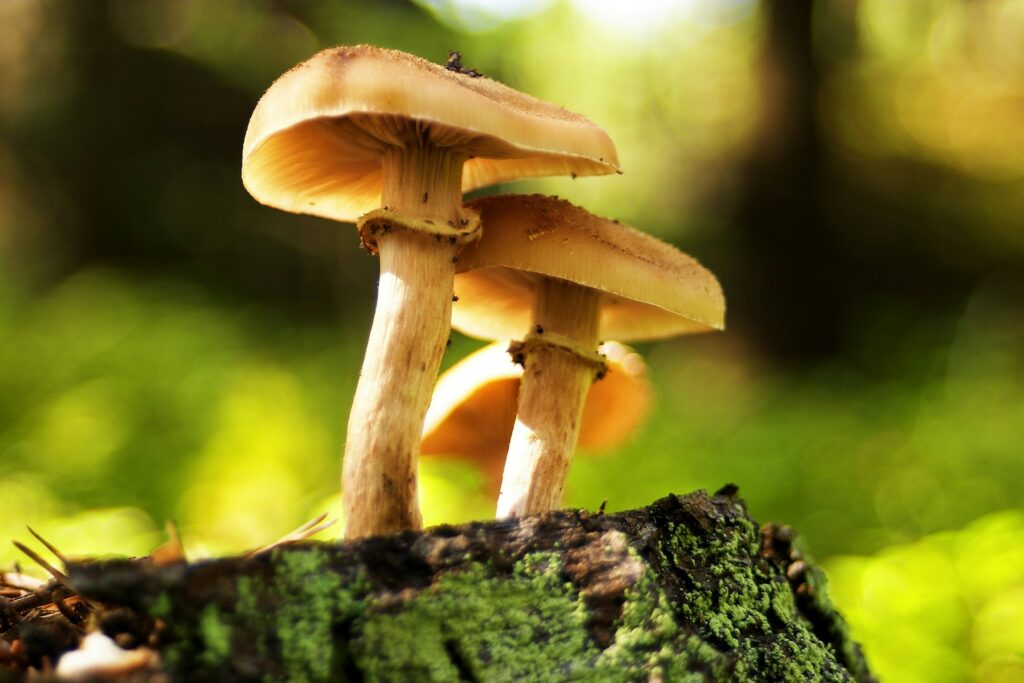
Yeast – a type of fungus – is responsible for fermenting everything from beer to wine to bread. Without fungi, your pint or your glass of red wouldn’t exist. And let’s not forget kombucha, cider, soy sauce, and even some coffee processing techniques all rely on fungal fermentation. It’s not just about nutrition. It’s about culture, in every sense of the word.
They can be turned into meat alternatives.
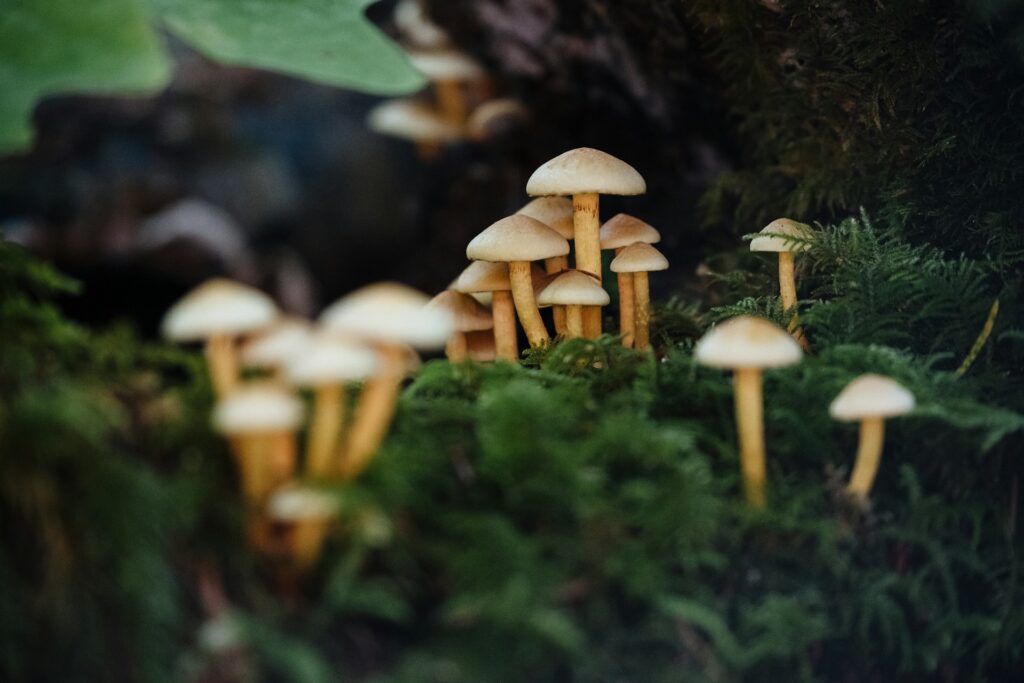
With more people cutting back on animal products, mushrooms are stepping up. Fungi like mycoprotein (used in Quorn) provide a high-protein, low-fat alternative to meat, and they’re much more sustainable to grow. They require less water, land, and energy compared to traditional livestock, and they’re not reliant on seasonal crops either. That’s a win for the environment and for people looking for different dietary options.
They’ve been used in spiritual and cultural ceremonies for thousands of years.
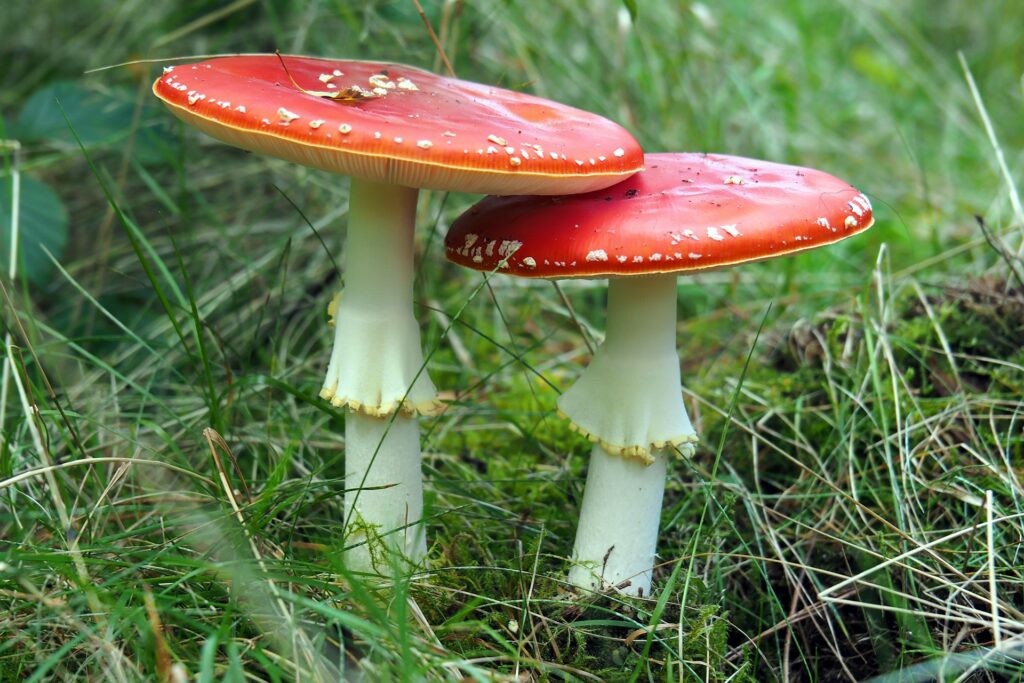
Across different cultures and continents, mushrooms have been part of rituals and healing ceremonies for centuries. Indigenous groups in Central and South America have used psilocybin mushrooms in spiritual settings long before science caught on to their effects. These traditions aren’t just relics of the past. They’re still practised today, and they’ve shaped how some communities understand health, consciousness, and connection.
They can survive in space.
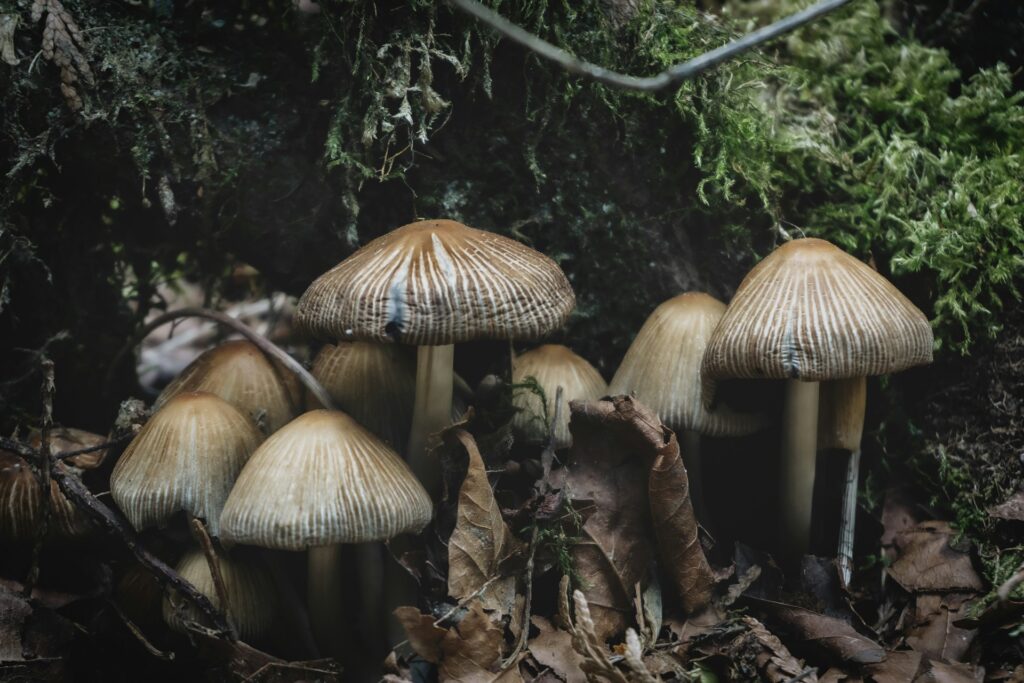
Fungi are incredibly hardy. In 2020, scientists sent fungi to the International Space Station and found that they could survive extreme radiation and microgravity. Some species even seemed to adapt and thrive, showing potential for future space farming or life support systems. It sounds like science fiction, but it’s part of genuine space research now. You can read more about it here.
They may help treat Alzheimer’s and dementia.
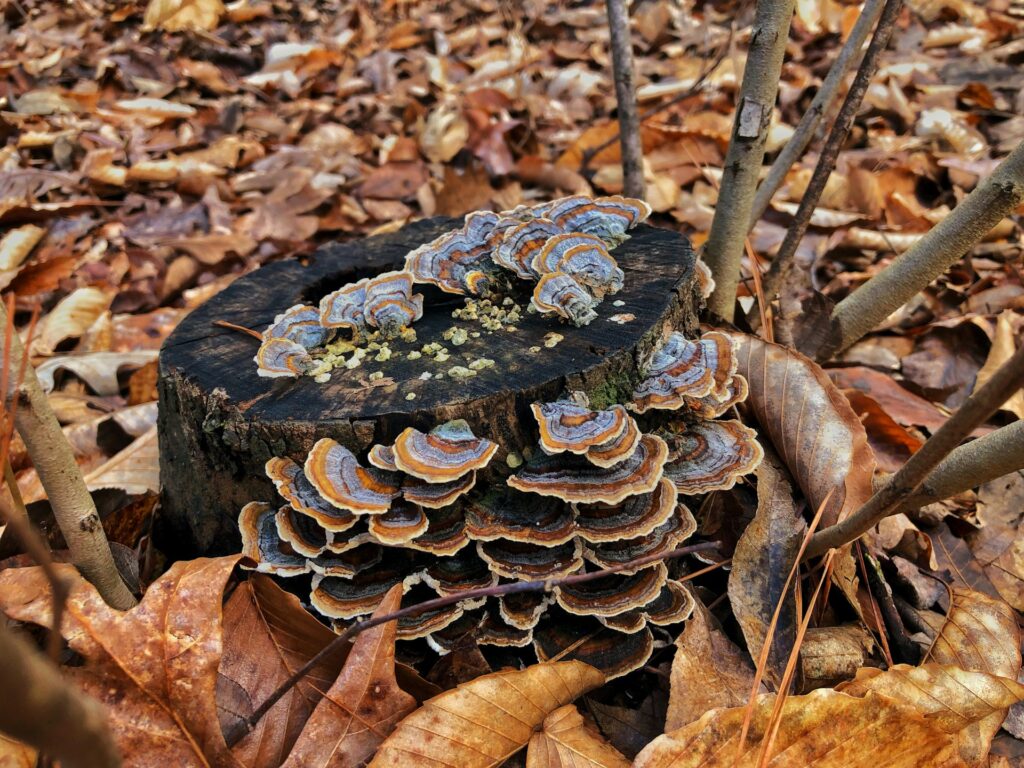
Lion’s mane mushrooms are being looked at for their possible role in nerve regeneration and brain health. Compounds in lion’s mane have been found to stimulate the growth of nerve cells and may improve memory and cognitive function, particularly in the early stages of neurodegenerative diseases.
While human trials are still limited, some early studies have shown improved mental functioning in older adults after taking lion’s mane supplements for several weeks.
They help lock carbon into the ground.
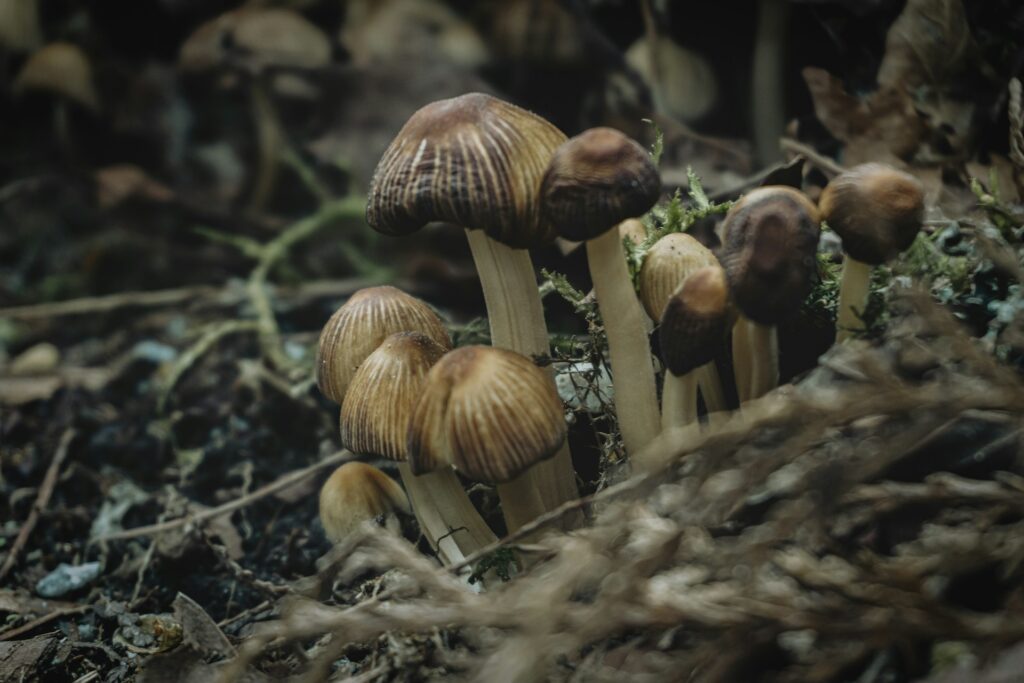
Fungi play a key role in carbon cycling. When plants absorb carbon dioxide and store it in their roots, mycorrhizal fungi—the kind that connects with plant roots—can help lock that carbon into the soil. That makes fungi a vital part of fighting climate change.
According to a 2023 paper in Current Biology, fungi store more than a third of the carbon taken up by plants, and do so underground, where it stays trapped for longer. This makes fungi a secret weapon in slowing global warming.
Mushrooms can’t be underrated.
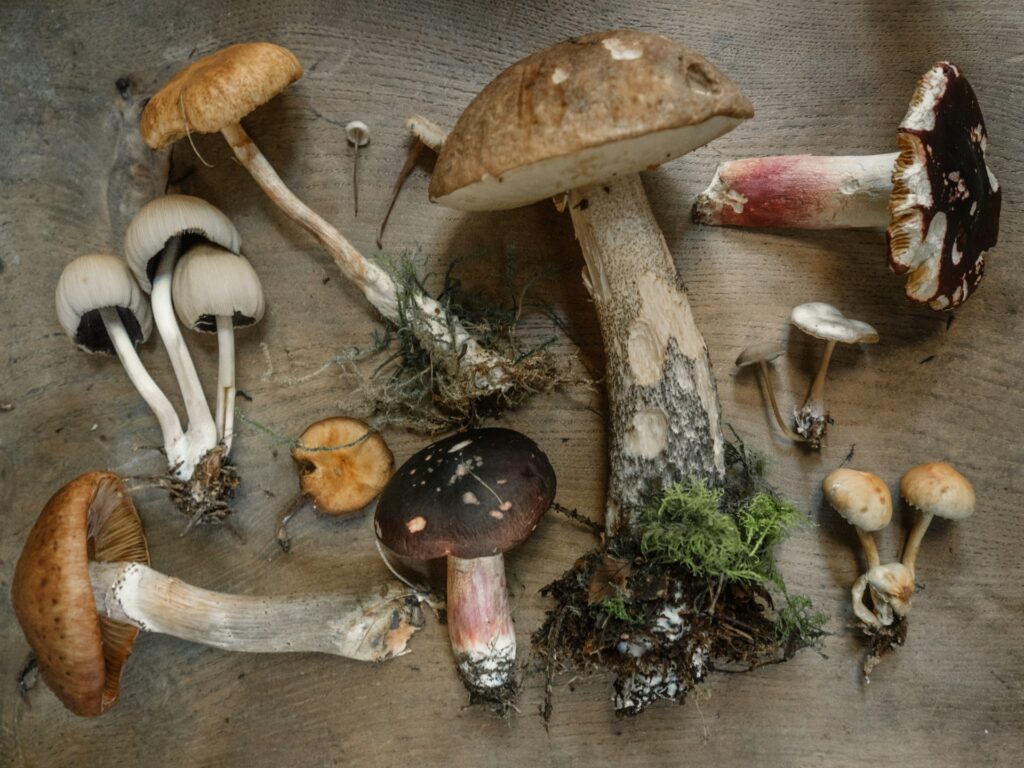
Mushrooms might look quiet and unassuming, but they’re absolute powerhouses when it comes to science, medicine, food, and the environment. We’re still discovering just how much they’re capable of, and it’s becoming clearer that fungi will play a much bigger part in shaping the future of the planet than we ever imagined.